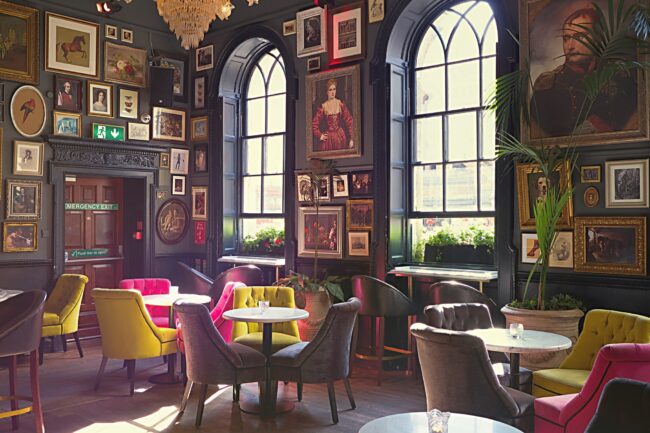
Do you have a quirky building sitting around idly waiting for you to get inspiration? Ever wish you had a hotel that is small enough to feel homey, but with an excellent service that can rival a five-star hotel? Investing in a boutique hotel allows you to attract revellers looking for unique hotel designs, personalized services, and modern amenities at relatively fair prices. While boutique hotels are a new trend in the hospitality industry, they are not unexpected. Customers want to feel valued, and the small-scale setting of boutique hotels can do that.
What is considered a boutique hotel?
Boutique hotels are the new trend in the hotel industry. Boutique hotels� rise in popularity in the last few years is a strong sign that they are here to stay. But what exactly are boutique hotels, and how have they affected the hospitality industry?
A boutique hotel is a small-size hotel that distinguishes itself from five-star hotels by providing at par services on a small scale, focusing on providing guests with an intimate experience. Boutique hotels have eccentric rooms, usually less than 100, equipped with modern amenities that ensure guests have a fantastic time.
Key features of boutique hotels
Boutique hotels tend to have key features that set them apart from other different types of hotels. As a hotelier, the features you can look for when you want to invest in a boutique hotel include:
Ideal location
As a hotelier, finding a hip location for your boutique hotel can ensure your hotel’s success. You can set up the hotel in an upscale residential area or the heart of your city�s cool spots. A location with quick entry and exits to major highways can translate to a flow of clientele all year round. Prioritise finding a place with easy access to other urban attractions, such as high-tech art studios and museums.
Unique clientele
Boutique hotels are unique and quirky, and they tend to attract customers with similar character traits. Once you have found the right spot and added elegance to the design, you can market your hotel as an eccentric location for people searching for quality service with an intimate touch.
Size
For a long time, hoteliers have worked under the assumption, the bigger the hotel, the better. Boutique hotels have broken from this norm by targeting a customer base that prefers a personalised, authentic, and unique local atmosphere, and guests can�t be found at regular hotels.
Unique design
Finding individualised d�cor is a key factor in setting your hotel apart from regular hotels. When designing your boutique hotel, exploit quirky architectural themes and styles that combine artistry, elegance, and comfort. As a hotelier, your goal is to find a d�cor that appeals to all your guests, you should use a different d�cor for the millennial clientele than for other age groups. Creating an eccentric boutique design means moving away from the traditional designs that have dominated the hotel industry.
Personalised service
As a hotelier, providing quality service can differentiate your boutique hotel�s survival and failure. You can create a reputation for delivering high-quality services that meet your guests� individual needs, which can help to attract customers to your boutique hotel.
What is the difference between a boutique hotel and a regular hotel?
Although boutique and regular hotels are an essential part of the hospitality industry, they have several distinguishing characteristics.
Size
Boutique hotels are small to give guests an intimate experience, while regular hotels have more rooms because the focus is on optimising the real estate rather than guests� comfort.
Difference in design
It�s rare to find two boutique hotels with the same design, style, d�cor, or menu. Every boutique hotel is unique. Comparatively, regular hotels maintain a standardised style and cuisine in most hotel chain locations.
Ownership
A hotelier with a family-oriented approach to hospitality is likely to invest in a boutique hotel, while corporations own regular hotels.
Service offered
Boutique hotels offer personalised luxury and comfort that is unique to small hotels. Because hoteliers in regular hotels aim to attract as many guests as possible, providing personalised comfort can be challenging.
Examples of properties you can convert to boutique hotels
Finding the right property to transform into a boutique hotel can be challenging for a hotel. Boutique hotels have a unique sense of style, architecture, and autonomy. Unique spaces you can convert to boutique hotels may include:
- Historical homes up for sale
- Bed and breakfasts in urban areas
- Shipping containers
- Old homes
- Victorian-style building
As the popularity of boutique hotels continues to rise, hoteliers are under pressure to create unique places that can meet customers� needs. Regular hotels operate on the more, the merrier, and the bigger, the better principle. Comparatively, boutique hotels focus on providing an eccentric clientele with unique experiences in small, comfy locations.